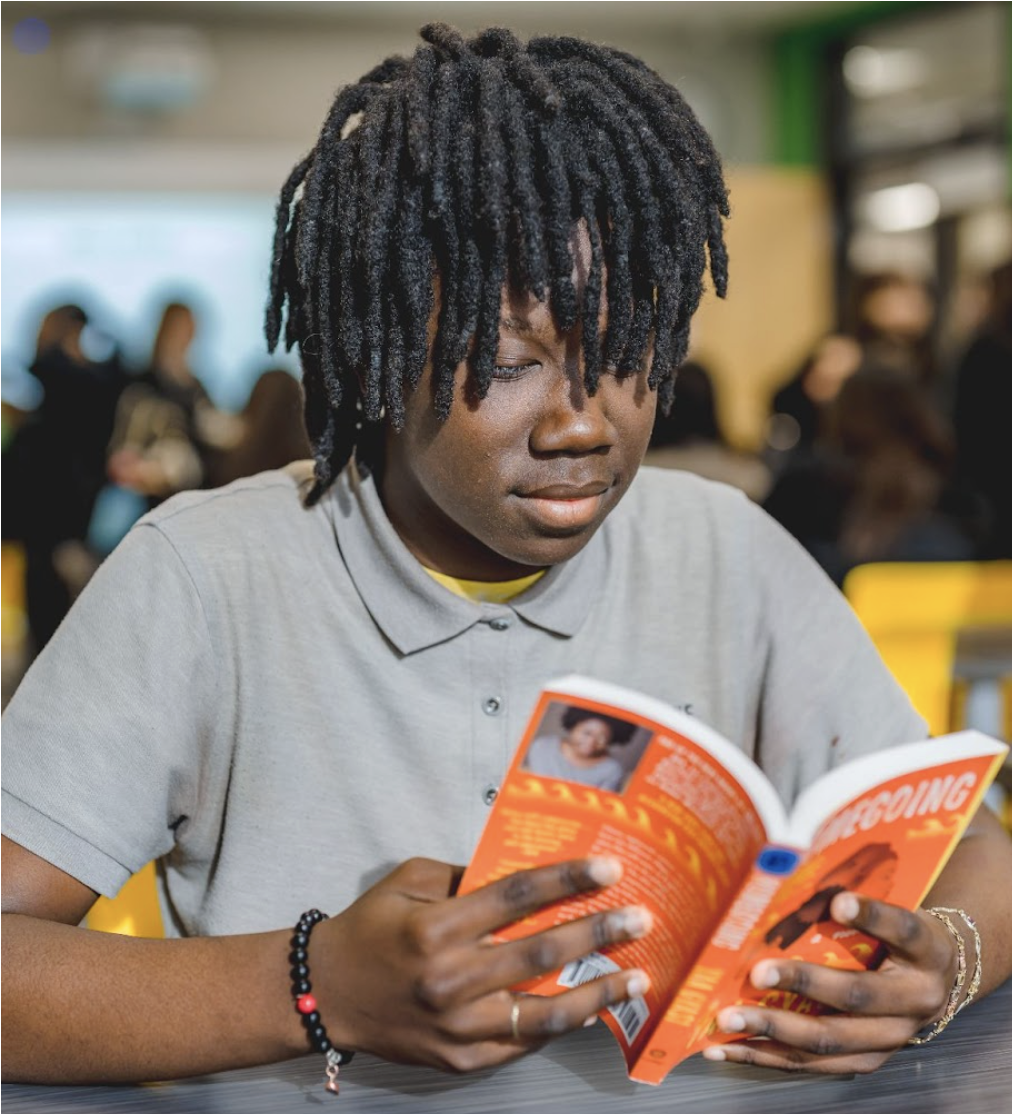Getting Adolescents to Read with Emotion

Jessica Tess is the Assessment and Student Work Coordinator at Riveting Results. Prior to joining Riveting Results, she was a teacher and teacher-leader for 10 years in the Milwaukee area.
In the Riveting Results ninth and tenth grade English Language Arts program, students begin each new chapter of fiction or nonfiction by reading aloud a particularly important and challenging passage. The program’s practice protocol enables them to read more smoothly and ultimately express emotion and insight. After recording themselves, students feel a strong connection to the characters and events of the passage, and are prepared to analyze it carefully.
A problem we have encountered is that the 9th and 10th grade students, remembering the fluency feedback they received in elementary school that told them how many words they could read accurately in a minute, try to read as quickly as they can and miss the power of the text. High school students need feedback that focuses them on how they can use their voice to bring out the emotion in the text.
Take Daniel, a ninth grade student reading Secret of the Yellow Death, a book about a Yellow Fever epidemic in Cuba. In this first recording, he briefly expresses concern when he reads the first of this passage: “Some insects died before they were completely grown up. Others dropped dead almost as soon as they became adults.” Soon after reading this sentence, however, Daniel reverts to his elementary style, reading faster and faster and in a monotone. There is no joy in his reading. He just wants to get it done. Listen to Daniel HERE.
The next morning, Daniel received a “not yet” score. His scorer told him simply, “Slow down so I can hear the emotion.”
In his next recording, you can hear Daniel start out rushing through the sentences. Over time, he slows down a bit and then, about a minute into his reading, his voice shifts. He expresses disgust. When he reads,“The first set would have to spend several weeks wearing and using clothing and sheets that had been stained by the sweat, vomit, urine, and feces of yellow fever patients,” Daniel deliberately elongates the most repulsive words in that sentence. His reading expresses Daniel’s gut understanding of the dilemma the author is examining: Why would anyone submit themselves to this type of risky, outrageous research? You can almost see a grimace on Daniel’s face, and find one on your own, as you listen to him read. Daniel will receive a “mastery” for this recording. Listen to Daniel HERE.
The feedback simply told Daniel to slow down, reminding him that a real person was listening—and what mattered to the listener was his emotion. As he read aloud more comfortably, the story’s drama compelled him to share his own insight. The more he read with a tone of disgust, the more insightful his understanding became.
We want to know what you think.
We recommend you read these next
Meet The Team
The Riveting Results program works because it incorporates feedback from dozens of educators experienced in the classroom and in running schools. Unlike other programs that primarily use academic experts to review materials, Riveting Results gets feedback from educators who have actually used Riveting Results in the classroom to develop students reading and writing performance.
contact us



































